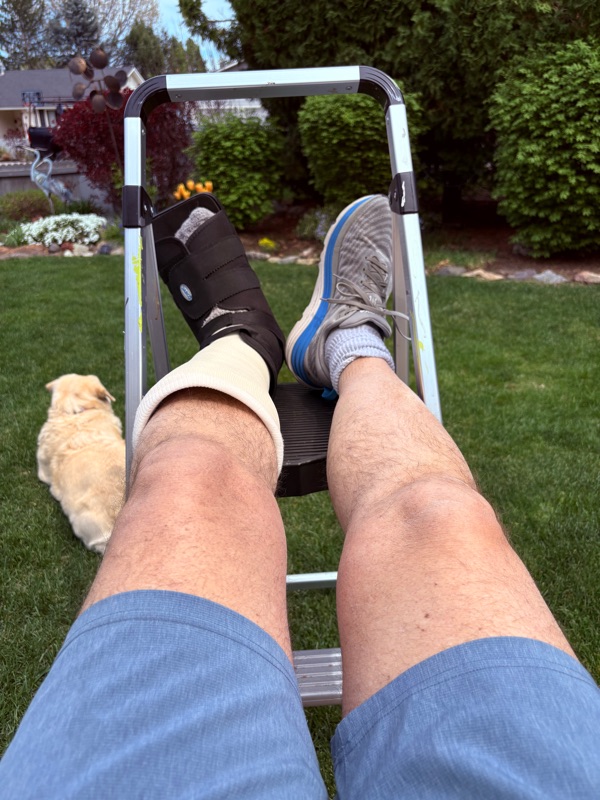When I had my two strokes more than 13 years ago, I was 50 years old.
In the ensuing years I’ve had some health issues related to my strokes and other assorted “age related” things.

In May of 2023, I was diagnosed with plantar fasciitis. As a result I have endured two years of pain and the resulting lack of exercise.
That summer I tried to walk regularly but my heel pain was too extreme. I tried to do exercises to relieve the pain but nothing helped. In September of 2023 I asked my doctor to give me a shot of Cortizone. We were headed to Boston for meetings and then headed to Maine. I just wanted to enjoy the trip without pain.
It helped a lot. Six months later I had the same pain. I went to an orthopedic doctor who prescribed minor physical therapy. It worked for a bit and then the pain got worse.
In September of 2024, my regular doctor gave me another round of Cortizone shots so I could travel to Phoenix. It really helped. For a while.
In February of 2025, the pain got worse. I went to another doctor who prescribed intense physical therapy. I did two months of expensive physical therapy and it helped.
After that I bought exercise equipment such as a slant board to continue with my physical therapy on my heel. The physical therapist said I should start to walk again.
At the same time because of the lack of exercise, I gained about 25 pounds which certainly exacerbated my pain because I’ve gotten heavier.
The physical therapist also was concerned that my Achilles tendon was inflamed.
Despite all of that effort the pain got worse. I asked my doctor to do another round of Cortizone shots and he declined. Instead he sent me to a podiatrist put me in a cast for six weeks. On Monday they took off the cast. The podiatrist was concerned that I might have gotten a blood clot because there were some unexpected pain and bruising.

That afternoon was spent at my old home Saint Al’s to get an ultrasound. Turns out that I did not get a blood clot which is wonderful given my history of strokes.
On the other hand the podiatrist is making me wear a very cumbersome knee-high sturdy boot for two months. If this doesn’t fix my issue surgery is the next step
Of course I have to laugh about the definition of “my issues.” It has been 13 years of health issues, therapy of every kind, recovery and more setbacks.
I feel bad for my wife who has to deal with all of my “shit.” We’re going to celebrate Our 25th anniversary in December. I’ve realized that most of our marriage has been Heather taken care of me.
I’m physically, emotionally and mentally exhausted and forlorn. Sometimes it’s tough too not give up.
Comments